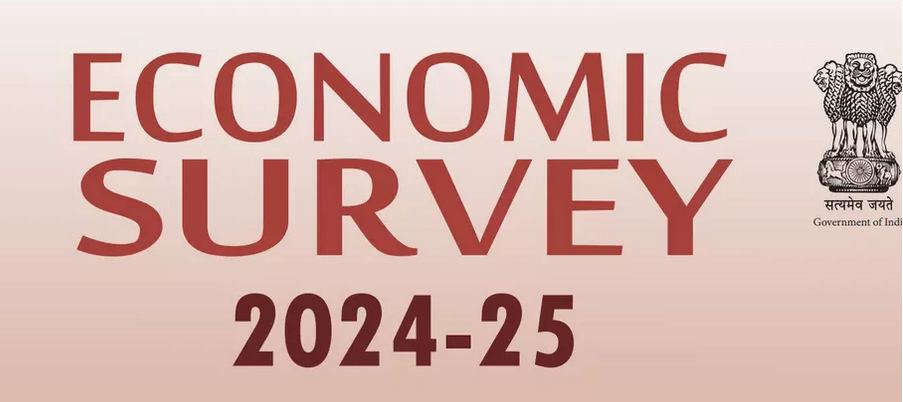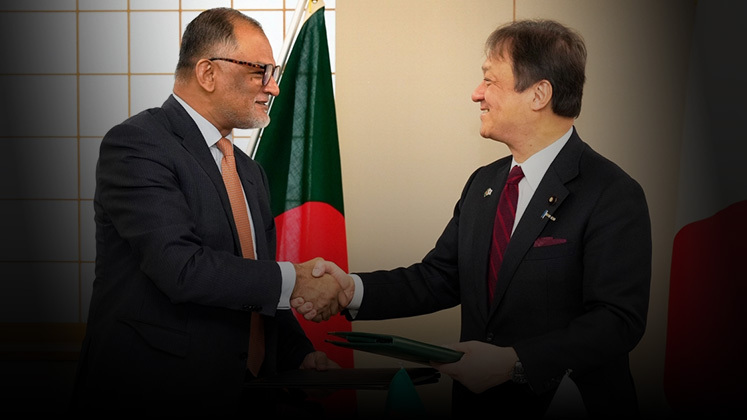
The Economic Survey 2024-25, released ahead of the Union Budget, presents a comprehensive analysis of the Indian economy, with a dedicated section on the textile and apparel industry.The survey acknowledges the sector's significant contribution to GDP, employment, and exports, but also highlights the challenges it faces in the global market.
Key highlights
Global market share: The survey reveals that India's textile export market share in 2023 was a mere 2.8 per cent, significantly lagging behind China (30 per cent), Bangladesh (9 per cent), and Vietnam (7 per cent). This underscores the need for India to enhance its competitiveness in the global arena.
Complex procedures: The survey points out that complex procedures and pre-shipment inspection certificates hinder the growth of textile exports. These bureaucratic hurdles increase costs and slow down logistics, making it difficult for Indian exporters to compete with their counterparts in other countries.
Decline in exports: After reaching a peak of $44.4 billion in FY22, India's textile and apparel exports have declined to $35.8 billion in FY24. This decline is attributed to various factors, including global economic slowdown, rising costs, and procedural bottlenecks.
Shift to MMF: The survey emphasizes the global shift towards man-made fibers (MMF) and suggests that India should focus on increasing its MMF production to capture a larger share of the global market. Currently, MMF constitutes 77 per cent of global fiber consumption, while cotton accounts for only 22 per cent.
Need for simplification: The survey calls for simplification, consolidation, and elimination of complex procedures that burden textile exporters. It suggests that addressing these challenges can significantly reduce costs and improve efficiency, making Indian exporters more competitive.
Data and Statistics:
Metric Data India's Textile Export Share 2.8% (2023) China's Textile Export Share 30% (2023) MMF Share in Global Consumption 77% (2024) India's MMF Production Share 9.20% Textile & Apparel Exports $35.8 billion (FY24)
Challenges and recommendations
Complex procedures: The survey recommends simplifying export procedures and eliminating unnecessary documentation to reduce costs and delays.
MMF focus: The survey suggests promoting MMF production through investments in research and development, technology upgrades, and skill development.
Infrastructure development: The survey highlights the need for improved infrastructure, including logistics, transportation, and warehousing, to facilitate smooth movement of goods.
Skill development: The survey emphasizes the importance of skill development programs to enhance productivity and innovation in the textile sector.
Trade agreements: The survey suggests exploring new trade agreements and strengthening existing ones to gain better access to international markets.
Case studies
The Economic Survey cites the success stories of countries like China and Vietnam, which have achieved significant growth in textile exports through strategic policies and investments. These case studies highlight the importance of government support, infrastructure development, and focus on MMF production.
Critical analysis by industry experts
Industry experts have lauded the Economic Survey for its comprehensive assessment of the textile and apparel industry and its focus on addressing the challenges faced by the sector. However, some experts have also pointed out certain areas that need further attention.
Focus on MSMEs: While the survey acknowledges the dominance of MSMEs in the sector, some experts believe that it should have provided more specific recommendations for promoting their growth and competitiveness. They suggest that MSMEs need targeted support in terms of technology upgrades, access to finance, and marketing assistance. (Source: "Economic Survey 2024-25: A Critical Analysis of the Textile Sector" - Textile Association of India)
Sustainability: The survey briefly mentions the need for sustainable sourcing, but experts believe that it should have emphasized this aspect more strongly. With increasing global focus on sustainability, Indian textile exporters need to adopt eco-friendly practices to remain competitive. (Source: "Sustainability in the Textile Industry: Challenges and Opportunities" - Confederation of Indian Textile Industry)
Labor laws: Some experts have pointed out that the survey does not address the issue of labor laws, which are considered to be complex and restrictive in India. They suggest that simplifying labor laws can help attract more investment and boost employment in the sector. (Source: "Impact of Labor Laws on the Textile Industry" - Indian Texpreneurs Federation)
Aligning with shift towards MMF, a critical need
"India needs to align with the global shift towards MMF to capture a larger share of the international textile market ", says Economic Survey 2024-25. The Economic Survey 2024-25 provides a comprehensive overview of the textile and apparel industry in India. While it acknowledges the challenges faced by the sector, it also offers valuable recommendations for boosting its growth and competitiveness.












